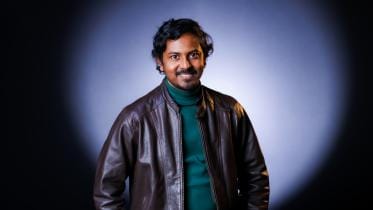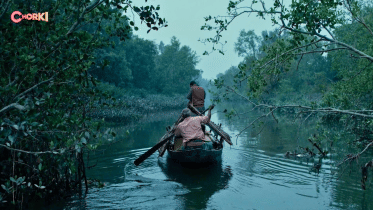Feu
The rise of Rizu
In becoming one with his character, Rizvi Rizu often pushes himself to the point of injury. “In ‘Feu’, I had a fight scene where I had to run at full speed through a forest, and the sharp leaves pierced my feet. In ‘Waqt’, I severely injured my thumb while holding a saw incorrectly. My thumb was on the body of the saw, and when I turned it on, it started moving and tore my skin. I suffered for 15-20 days, and everyone was terrified,” he recalled.
7 February 2025, 18:05 PM
‘Feu’ release date announced
Sukorno Shahed Dhiman's upcoming web series “Feu”, set against the 1979 Marichjhapi massacre, explores the intersection of politics and humanity, shedding light on the brutal treatment of refugees.
16 January 2025, 13:07 PM
Chorki’s ‘Feu’ follows the Marichjhapi massacre
The history of the Marichjhapi massacre, a dark chapter in the Sundarbans, forms the foundation of Chorki’s upcoming web-series “Feu”. Set against the backdrop of the 1979 massacre, the series explores the intersection of politics and humanity, highlighting the brutal treatment of refugees.
12 January 2025, 06:26 AM





